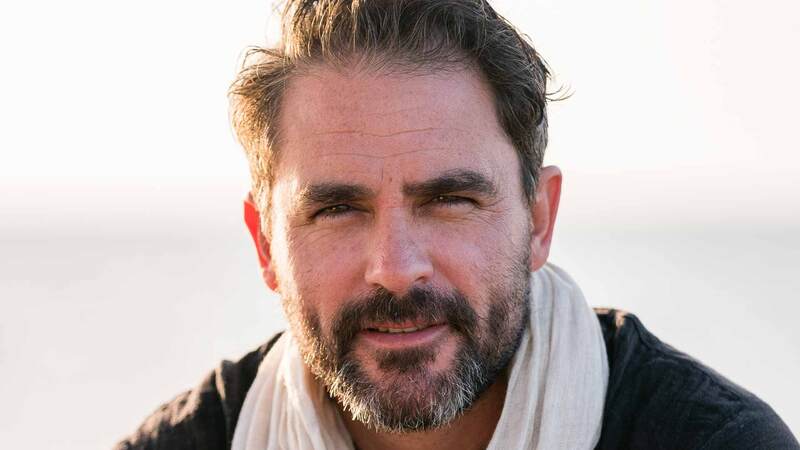You are viewing your 1 free article this month. Login to read more articles.
Saving Religion: Alain De Botton
The Independent Bath Literature Festival Artistic Director James Runcie introduced Alain de Botton as “one of the most thoughtful people in Britain”. His hour-long talk, opening the first full day of events at the 2012 festival, showcased both sides of the meaning of "thoughtful": incisive but also tactful.
De Botton – who seemed both relaxed and very grounded (he glanced frequently at his two young sons on the front row and thanked them both at the start and end of the talk) – said he had spent his career searching for “wisdom”; this had now led him to try to find a middle ground in the war of words over religious belief. In seeking to break up this particularly fight, like a very gently spoken pub landlord on a Saturday night, he confirmed that “I am indeed an atheist” – and, like many in Britain, one that likes Christmas carols and old churches – but then spent an hour explaining ways in which secular society could benefits from the systems of religions.
His approach stands in opposition to the Richard Dawkins/Christopher Hitchens school, which de Botton believes has become fixated with arguing on an ideas basis – “Does God exist?” – in order to wipe out religion altogether. This, he said, has led to a “sterile standoff”. Towards the end of the hour, he took a big sideswipe at Dawkins – or at least what Dawkins has become under fire – saying that he "has become intolerant" and runs well-funded organisations that attack atheists who dare to be sympathetic about religion. One sensed a personal wounding.
Instead, de Botton claimed that to “build a good society… many of the clues lie in religion.” He advocated a “pick and mix” stance to religions, which he described as “works of culture” to approach as a “buffet”.
Focusing on education, art, organisation and community building, de Botton painted a picture of religion as collective, targeted at the soul and more effective at harnessing and treating the problems of the human condition than post-Enlightenment secularism, with its ideology of rationalism and the inherent stability of the human spirit.
Secular alternatives to religious thinking haven’t been fully explored, de Botton argued. For example, education for religions is “a route to one’s full humanity”; when church attendance dropped off in the 19th century, thinkers like J.S. Mill proposed ‘culture’ as a replacement to the education role of religion, but the idea never took off because “it seemed too religious” – a university professor now, de Botton said, would never consider their institution as teaching someone how to live well; and, ‘they’ say, “the only people that read self-help books are stupid.”
By contrast, he said, religions tell us “we’re only just holding it together”, and that “we are incredibly forgetful”. They teach by engaging our every facet (witness the Pentecostal teachers of the Deep South). And they see art as a means to effect a person’s understanding of the world. On this last point he drew contrasts with the current state of modern art, created as the after-effect of the idea of “art for art’s sake”, the result being a disconnection from life and the belief that “the better a work of art is, the more ambiguous it is”. Finally, this has led to a divorcing of feeling from everyday people’s relationship with art.
De Botton seemed to be very much speaking for the easygoing British public of whatever ideological stance. Inherently humanistic and against the mingling of the civil and the religious/moral spheres, he argued for beauty over haphazardness (such as in architecture, where it is now led by market values) and togetherness over individualism – interestingly, he criticised notions of romantic love as suggesting we need nothing more than a single person to make sense of our world.
Having been extremely inclusive – and having observed that "the temper of England is very moderate" – it was fascinating to watch de Botton's reactions as several members of the audience tried to persuade him he could be religious if he was more open to God, to which he firmly but kindly said there was a line of belief he wouldn't cross.
Nevertheless, de Botton, concluded, "In the end, religions are too complex, wise and intermittently beautiful to be abandoned."
Religion for Atheists by Alain de Botton is out now, published by Hamish Hamilton.















